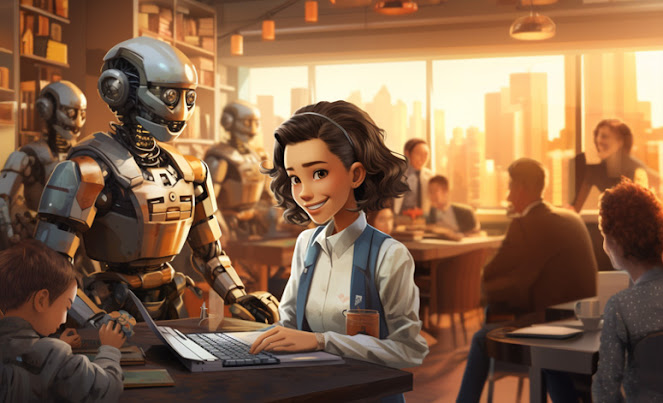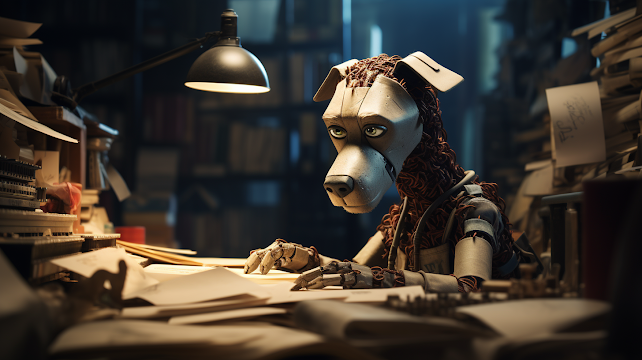Think you’ll lose your job to AI? No, you’re being promoted!
Contrary to dystopian narratives, artificial intelligence (AI) isn't here to take our jobs. Rather, it is turning us all into managers. And your success in the AI age depends on whether you are willing to step into that new role.
The current AI discourse paints a bleak picture of mass unemployment and identity crises, as AI surpasses our abilities as humans. I disagree. Historically, technological transformations have always yielded a net gain in jobs, albeit amidst disruptive periods and the extinction of certain professions. I don’t see a reason why AI should deviate from this trend, even when accounting for its unprecedented pace of change.
Far from making you less useful or worthy, AI is not replacing you or diminishing the value you bring to the table. On the contrary, AI, like any other technology before, gives you powers you didn't have before. It enhances your existing skills and allows you to do the things you already do – but faster, with higher quality and with bigger impact. And not just that! It allows you to do things that until now were absolutely out of reach for you.
As Ethan Mollick aptly describes, you become 'augmented' and gain 'superpowers'. And with these powers, your role as a knowledge worker evolves. No longer are you a mere task-doer, slogging through a mix of interesting and mundane tasks. Instead, you become the boss, delegating tasks to various AI entities. In this AI-driven world, we're all transitioning into managerial roles. Congratulations, you just got promoted!
In your new role, you will be the producer, creative director, supervisor, and instructor. You will package and assign tasks, monitor work quality, make creative decisions and integrate AI's output into your work. AI has no intent, you have. AI has no motives, values, goals, emotions, experiences, or personal truth. But you do. Thus, you will manage your projects, delegate operational or cognitive tasks to AI, and use the results to for whatever you want to create, achieve or convey.
We haven’t even started to understand the potential boost in human productivity, creativity and impact this will bring. Products and services once deemed too costly or time-consuming will be created using AI. Creatives with a vision but lacking the craft skill or time can harness AI's capabilities, directing it towards their goals. This paradigm shift is nothing short of a revolution, expanding human expression, vision, and creativity. Already now we are seeing a Cambrian explosion of new tools, new application scenarios, new art forms and creative outputs.
Are there risks and downsides? Absolutely, and we must address and mitigate them. However, we are the ones driving AI with our intent. Like previous technologies, AI serves to augment and amplify our goals. If these aims are good, noble, and creative, AI will enhance them. If they're disruptive or malicious, AI will unfortunately amplify those too. In a way, AI perfectly embodies the VUCA world, a world that is volatile, uncertain, complex, and ambiguous. AI will intensify all these aspects, and we must learn to navigate this landscape.
I am an inherent optimist. I firmly believe that humans are more resilient and also more adaptable than we ourselves give us credit for. And if this age we’re in is about anything, it is about adaptability – our ability to adapt to new realities and living conditions. Embracing your new role as an AI manager is a critical step in this adaptation process.




Comments